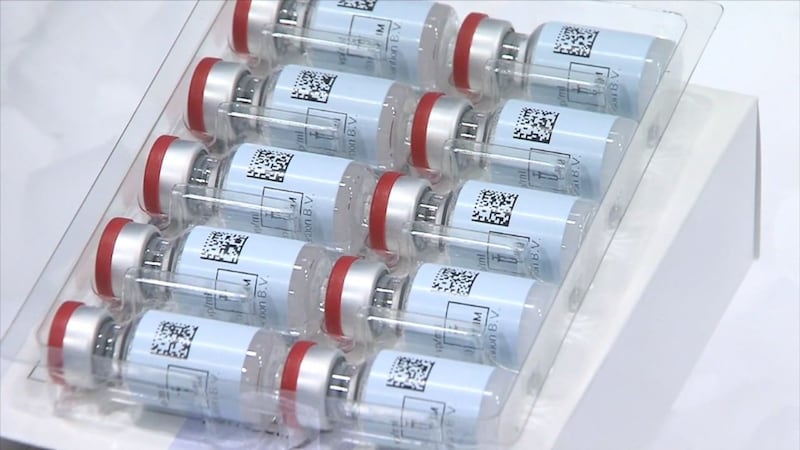ORLANDO, Fla. — The Food and Drug Administration announced Wednesday the Johnson & Johnson single-dose COVID-19 vaccine meets their requirements for emergency use authorization.
Florida Governor Ron DeSantis says his team is already working on a distribution plan for the single-dose shot, meaning there could soon be three coronavirus vaccines available.
Doctors say the differences between the vaccines go well beyond the number of doses they require.
READ: White House sending 25 million masks to community health centers, food pantries
All three vaccines introduce something to the cells, but doctors say what gets introduced varies depending on the shot.
Johnson & Johnson has submitted its COVID-19 vaccine for EUA. Learn about the biggest differences between this single-dose vaccine and those currently available from other manufacturers. https://t.co/FtPsnJljRF
— AdventHealth (@AdventHealth) February 22, 2021
“Pfizer, Moderna...very, very similar in that they both use messenger RNA,” Dr. Aldric Simmonds of AdventHealth explains.
As Dr. Michael Teng of USF Health further explains, the mRNA is inside a fat bubble, and that genetic code is what trains the immune system.
“Once the RNA gets into your cells, it’s immediately made into the proteins, the viral proteins,” Dr. Teng says. “Then you stimulate your immune response.”
On the other hand, the Johnson & Johnson vaccine uses DNA. It’s what doctors refer to as a vector vaccine.
The DNA sits in the shell of a harmless virus that can’t make the patient sick.
READ: Ongoing COVID-19 vaccine studies leading to new discoveries about the shots
“It’s called adenovirus...it normally causes common colds,” Dr. Teng says. “So basically what you’re using is just the outside shell of it as the delivery system.
Then, the body converts the DNA to mRNA and the proteins are made, which triggers the immune response.
One key difference with the Johnson & Johnson vaccine will be the storage requirements.
As. Dr. Teng notes, the mRNA vaccines are less stable, which is why they have to be kept in ultra-cold temperatures.
#USFHealth virologist Dr. Michael Teng answers questions on how the mRNA vaccines work, advantages and drawbacks, and whether or not the population will return to a pre-COVID lifestyle after receiving the vaccine. Read more ➡️https://t.co/qkX5dtxCcO pic.twitter.com/Q865mibbLq
— USF Health (@USFHealth) February 22, 2021
That’s because the bubble of fat carrying to mRNA is quite fragile, making the adenovirus vaccines like Johnson & Johnson’s slightly more stable. Therefore, it can be stored in a normal refrigerator, making distribution easier.
Perhaps the most significant difference between the three vaccines is how effective they all are.
The FDA says, overall, the Johnson & Johnson vaccine is about 66% effective at preventing moderate to severe COVID-19 infections. Pfizer and Moderna vaccines are 95% effective at protecting people from symptomatic COVID-19 cases after the second dose.
However, Dr. Aldric says efficacy should not be a concern.
READ: Disney cancels more cruises due to COVID-19, see where other companies’ sailings stand
“I know that’s a hard thing to say,’ Dr. Aldric says. “All of these vaccines are really effective at blocking severe COVID.”
Overall, Dr. Teng says the best approach is to get any shot that’s available.
“Whatever you can get, whenever you’re eligible to get a vaccine, get the one that you can get.”
Cox Media Group









